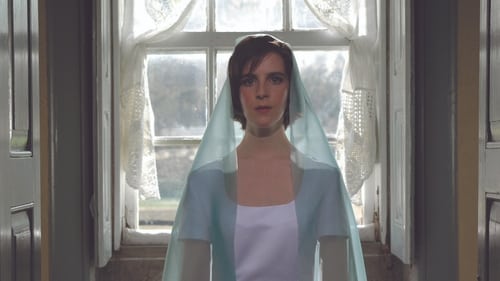
Producer
Pê, a man with terminal cancer, wanders through his city, Lisbon. Throughout the day, he is confronted with a reality unaware of his suffering while he prepares his imminent death by writing a farewell letter to his daughter. When emptying her father’s house, the daughter discovers the letter. It is the beginning of a new encounter.

Writer
Pê, a man with terminal cancer, wanders through his city, Lisbon. Throughout the day, he is confronted with a reality unaware of his suffering while he prepares his imminent death by writing a farewell letter to his daughter. When emptying her father’s house, the daughter discovers the letter. It is the beginning of a new encounter.

Producer
The Empire Hotel is a 30-year-old landmark in Macau's old quarter, inhabited by characters with their own stories and struggles. It is also Maria's home. One day, the burden of keeping lives together and the hotel standing falls on her shoulders. A young man who left Macau two decades ago returns, intent on revenge and reclaiming his mother's fortune – half the hotel. Inside the casino, Maria sings Fado and exotic dancers perform. It is against this illusory backdrop that the man lays eyes on Maria for the first time; they’re both mesmerized. The film cuts back and forth between film noir-style scenes of Macau’s past and present.

Screenplay
The Empire Hotel is a 30-year-old landmark in Macau's old quarter, inhabited by characters with their own stories and struggles. It is also Maria's home. One day, the burden of keeping lives together and the hotel standing falls on her shoulders. A young man who left Macau two decades ago returns, intent on revenge and reclaiming his mother's fortune – half the hotel. Inside the casino, Maria sings Fado and exotic dancers perform. It is against this illusory backdrop that the man lays eyes on Maria for the first time; they’re both mesmerized. The film cuts back and forth between film noir-style scenes of Macau’s past and present.

Producer
I think I'll remember you, everything, but I'm not sure.

Writer
I think I'll remember you, everything, but I'm not sure.

Screenplay
Cartas da Guerra está basada en un libro del renombrado autor portugués António Lobo Antunes. La novela epistolar, publicada en 2005, reúne las cartas que un joven soldado envió a su mujer desde Angola entre 1971 y 1973, durante la Guerra Colonial. Al igual que el propio Lobo Antunes, el joven soldado es médico y escritor en ciernes.

Production Assistant
Luciano, sale de prisión y es llevado por su hermano, Flórido, a casa de Alfreda, donde trabajará como sirviente. Alfreda le dice que su mayor deseo es que se le aparezca la virgen, lo que deja a Luciano admirado. Además de todo, ahora la rica señora viene con sus pretensiones sublimes. ¿No le bastaba con tener un Aston Martin y un Jaguar aparcado a la puerta de casa, ni tener diez vestidos para cada estación? Todo fue culpa del profesor Heschel, o de quien fuera… Ir más allá de la promesa sería una herejía. Alfreda dijo que no descansaría mientras no viera a Maria y le hiciera unas cuantas preguntas. Filipe Quinta, el Falsificador, afirma tener la solución. Sin embargo, Bahia, su marido, escuchaba música…





